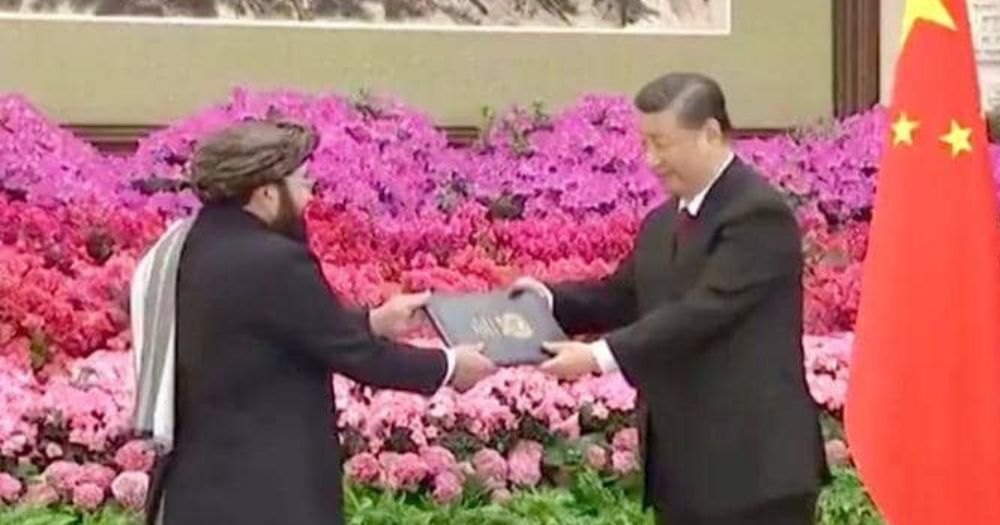Chinese President Xi Jinping accepted the credentials of Ambassador Asadullah Bilal Karimi from Afghanistan's Taliban government in a formal ceremony on Jan. 30, 2024.
It has not been confirmed by China's Foreign Ministry if China has offered full diplomatic recognition of the Taliban administration in Afghanistan.
Formal diplomatic recognition is not always formally declared
The formal ceremony was hosted at the Great Hall of the People, where envoys from countries including Cuba, Iran, and Pakistan presented their credentials to Xi.
Videos and photos of the ceremony show Karimi approaching and handing his credentials to Xi, who accepts.
Formal diplomatic recognition is not always formally declared and diplomats have differing opinions on whether Xi's actions can be considered to be formal recognition, Voice of America (VOA) reported.
Javid Ahmad, Afghan ambassador to the United Arab Emirates under the former Afghan government, told VOA the move was a clear indication of recognition.
Matthew Miller, spokesperson for the U.S. State Department, said it is up to Chinese officials to clarify if the country officially recognises the Taliban regime.
During a press conference on Jan. 31, 2024, Foreign Ministry spokesperson Wang Wenbin did not directly address questions on China's stance on the issue.
He said it is a normal diplomatic arrangement for China to receive the new ambassador to China sent by the "Afghan interim government" and for them to present their credentials to the Chinese leader.
"China is committed to a foreign policy of friendship toward all Afghan people," Wang said, adding that "China believes that Afghanistan should not be excluded from the international community."
China grows friendly with Afghanistan
China has been growing diplomatic and economic ties with Afghanistan, with China being the first country to appoint a new ambassador to the capital of Afghanistan, Kabul in September 2023, said AFP.
The growing relationship means China may get access to Afghanistan's untapped mineral resources, and secure Afghanistan as a market for Chinese goods.
China also abstained from voting—alongside Russia—on a United Nations Security Council resolution calling for the appointment of a special envoy to Afghanistan, which the Taliban authorities are against.
Russian's Foreign Minister Sergey Lavrov said his government does not officially recognise the Taliban government in a media briefing following a UN Security Council meeting on Jan. 24, 2024.
Taliban's Islamic Emirate of Afghanistan not recognised by other UN member states
Other UN member states do not recognise the Taliban government in Afghanistan, with the United Nations repeatedly denying their requests for representation at the world body.
The Taliban is an Islamic fundamentalist group which introduced rules and punishments aligned to their harsh interpretation of Sharia law in their time in power.
The Taliban's rapid return to power in Afghanistan in 2021 after the withdrawal of U.S. forces took the world by surprise.
Countries, including the U.S., have accused the Taliban-ruled Afghanistan of human rights violations, including women's rights to work and education.
Economic and political sanctions have also been imposed by the U.S. and other European countries.
Human Rights Watch said that over 90 per cent of the Afghan population remained food insecure through the year following the Taliban's takeover.
Related stories:
Top image via Bilal Karimi / X

If you like what you read, follow us on Facebook, Instagram, Twitter and Telegram to get the latest updates.



